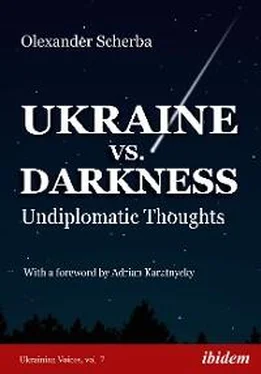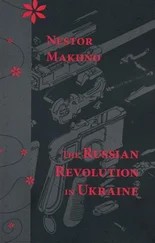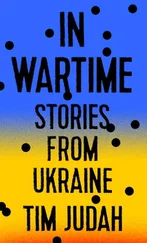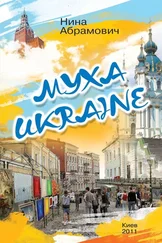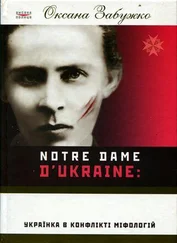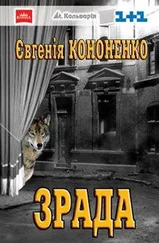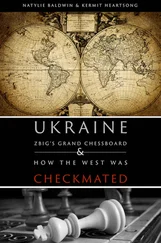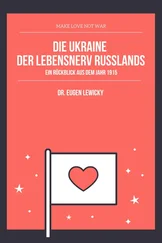Well, a new era did come. But not the one Fareed Zakaria hoped for.
Vladimir Putin’s speech in Munich of 2007 and his invasion of Georgia in 2008 were the writing on the wall, but most people in the West chose to misread it. We know why. On the one hand, the EU was created in the post-World War Two world not to tackle enemies but to find compromises, to balance things out for the sake of a peaceful co-existence. The NATO predicated on the assumption that Russia is a difficult partner of a new kind and not an unsolved problem from the past. The very idea that despite the West’s peaceful demeanor and rhetoric, the Russian Federation would eventually switch from Khrushchev-like speeches to Hitler-like annexations was unimaginable in the mid-2000s. It probably didn’t occur even to EU’s gloomiest eggheads.
On the other hand, for the United States, all of a sudden seeing Russia for what it was (a reborn, resurgent, vengeful enemy) amid the 21st century would be tantamount to recognizing that the Cold War wasn’t really won by America, but rather put on hold during the Yeltsin rule in the 1990s and restarted under Putin in the 2000s. It would also require recognition that Putin’s nationalist resurgence had not been duly treated politically or militarily by the United States (or anybody else, for that matter). Neither Brussels nor Washington were ready to admit their mistakes or rethink their perception of Russia, let alone their perception of history. So, many decision-makers chose to be deaf and blind to the new growing threat. Even Putin’s invasion of Georgia in 2008 didn’t stop the West from starting yet another reset with Moscow (i.e. forgiving what Moscow did).
“The ex-captive nations”, as Edward Lucas has appositely called Ukraine, Moldova, and Georgia, 2were less enthused than others in these two decades. And this for two reasons. First, in the era of global growth, their people remained poor. Second, in the age of other Eastern and Central Europeans moving towards the EU and NATO, the future of these countries remained unclear. The EU failed to provide them with even the vaguest roadmap towards membership (although even a mere informal “Once you will be ready, you will be in” pat on a shoulder would have sufficed), and NATO didn’t dare accept them. They were left back in EU’s and America’s blind spot—while Putin’s resurgent Russia kept pressing on. So, it was your classic “between the rock and a hard place” kind of a situation.
The in-between countries seemed like a possible battlefield—not because the West saw this region as its part of the global pie and was willing to fight for it, but rather because dropping this part of the pie altogether would have been too messy and too humiliating. And yet it was “dropped”. And it got messy. And it got humiliating—at first in Syria, where the EU and NATO were remarkably absent and where the United States was actively confronted by the Russian Federation but chose not to push back. And then Ukraine got attacked and was left bleeding—for sticking up for the West and undermining Putin’s chances of rebuilding a USSR 2.0.
When addressing the US Congress in September 2014, Ukraine’s President Petro Poroshenko asked America to supply Ukraine’s army with lethal weapons to push back against Russian aggression. He uttered the words that went viral in political Washington: Ukrainian soldiers “need more military equipment—both non-lethal and lethal. Blankets and night-vision goggles are important, but one cannot win a war with blankets”. The State Department wasn’t happy. Poroshenko wasn’t supposed to ask for lethal weapons—and yet, he did. He did what a president does: he said what was on his citizens’ minds. But on the minds of the State Department apparently was: let’s not anger Russia!
I know this because I wrote that speech—and was almost certain that “the blanket” part would be left out (working outside of Poroshenko’s presidential administration, I couldn’t follow up and be sure what would happen with the text). I was criticized later for that line. Frankly, I still don’t know why it didn’t get kiboshed and why the speech was read almost exactly as I wrote it. But an even bigger mystery to me is this: how could a mere mentioning of giving Ukraine—America’s key partner in the region—a weapon to defend herself in a truly existential fight, cause this kind of reaction?
Ukraine and Syria weren’t just “a canary in the coal mine”. The two nations chose freedom over despotism and both were punished for it. One was bombed out; the other is being destroyed in a more sophisticated way. In the meantime, nothing has changed: the “free world” wants to be partners with the side who destroys freedom. How is this even possible?
The Trump presidency hasn’t been a good time for Ukraine-US relations, largely due to Mr. Trump’s personal animosity towards Ukraine and apparent affinity with Russia. Ukraine doesn’t have a problem with Donald Trump and even less with the Republican party—it was the US president who seemed to personally have a problem with Ukraine. But again, it all started before the 45th president got elected. In 2014, when asked by Thomas Friedman of the New York Times, what happens if President Vladimir Putin rolls his troops into Ukraine, Barack Obama responded that in that case, there would be new sanctions and that “trying to find our way back to a cooperative functioning relationship with Russia during the remainder of my term … [would] be much more difficult.” 3This cold, passionless response amid August 2014, the bloodiest month of Russia’s war on Ukraine’s freedom, left many Ukrainians speechless.
With all due respect, I think that if America wants to be seen as a leader of the West, if it is worried about the “cooperative functioning relationship” not only with murdering dictators, but also with the freedom-loving countries who get harassed by those dictators; if the very term “free world” isn’t to end up in the dustbin of history—then the United States and the West more generally can’t afford to be so vague in drawing the line between good and evil. Even more so, they certainly can’t afford to draw no line at all, as happened during the infamous Putin/Trump press conference in Helsinki, 2018.
In Georgia, Ukraine and Syria, Putin declared a global war on freedom. A war that the West chose not to see in its true dimension because it wasn’t the West who was bleeding. After Ukraine, it was the turn of Belarus. Hundreds of thousands got beaten, suppressed, and harassed in Minsk and other Belarusian cities, with Russia’s clear backing. Meanwhile, “the free world” was almost openly looking for a compromise with Moscow over the destiny of this sovereign nation. Remember the numerous tweets and articles discussing whether “the Armenian model” (a full and official refusal to pursue the EU- and NATO-membership in exchange for Russia’s support) would be the right “deal” for Belarus? Ironically, right after this, the Armenian-Azerbaijani war flamed up.
Time and again, the West tries to find something that doesn’t exist: a compromise between freedom and unfreedom. The sad irony is: Moscow doesn’t bother to give the West even an appearance of a “deal”. Time and again, it sends the West a clear message: in the post-Soviet space, in “Russia’s backyard”—and at any place in the world that it proclaims its “zone of interest”—Moscow doesn’t compromise. It wants it all, and it wants it now—while the West can discuss “mutual face-saving options”, “diplomatic solutions”, “multilateral negotiation formats” till it’s blue in the face—and make a reset after a reset after a reset. Reset is what politicians do when they don’t know what to do. Or if they don’t have the guts to do the right thing.
Читать дальше
